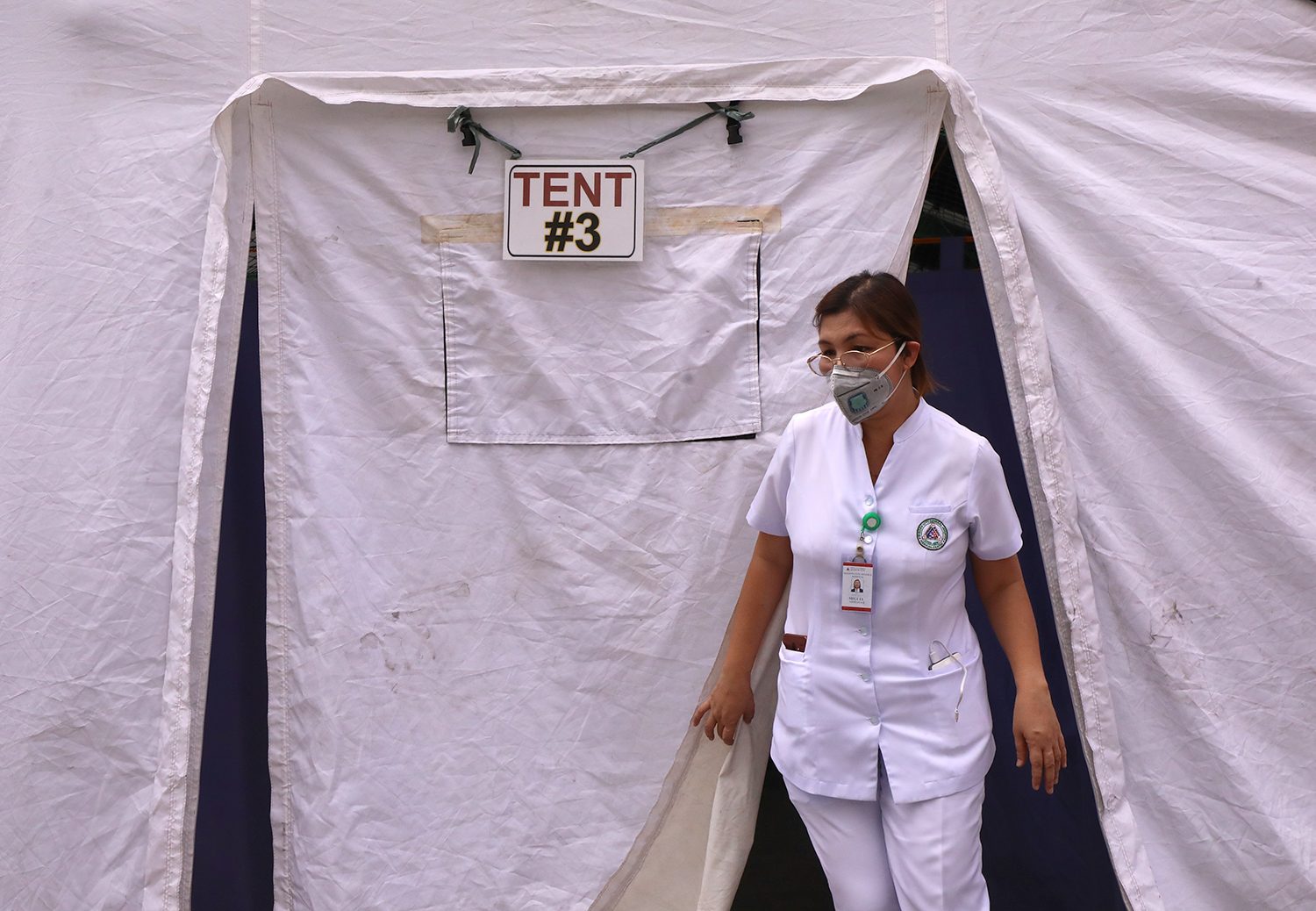SUMMARY
This is AI generated summarization, which may have errors. For context, always refer to the full article.

MANILA, Philippines – Thousands of rapid test kits for the novel coronavirus are on the way to the Philippines from South Korea and China, Health Secretary Francisco Duque III said on Monday night, March 16.
The arrival of the donated test kits is expected to enable health workers to test more people for the virus. At the Research Institute for Tropical Medicine (RITM) in Muntinlupa – the country’s main testing hub – currently only 300 people can be tested every day.
In comparison, South Korea is able to test 15,000 people a day for the coronavirus.
Some 500 rapid test kits donated by the South Korean government arrived in the Philippines last Friday, March 13, Duque said. Another 5,000 to 10,000 kits will arrive from South Korea this week.
Meanwhile, 2,000 “high-tech fast test kits” arrived from China earlier on Monday, and another 10,000 such kits are expected on Wednesday, March 18, Duque added.
The unavailability of test kits has forced health officials to prioritize people with symptoms of the virus, or who have had a history of exposure to infected patients or travel to countries with local epidemics of the virus.
More testing kits would mean the disease could be detected earlier in patients, increasing their chances of recovery while decreasing the likelihood of further transmission.
Moreover, the test kits from South Korea and China can turn up results within hours – much faster than the testing kits the RITM currently uses, which takes one to two full days to yield results.
How about technicians?
But it appears having more test kits on hand may not necessarily translate into faster diagnoses.
With more samples coming in as more people get tested, it could soon take the RITM surveillance team 3 to 5 days to release results, CNN Philippines reported on Monday.
Even with thousands of “high-tech” test kits, hospitals might not be able to deliver the expected rapid results if there won’t be a corresponding increase in the number of trained technicians running the tests and analyzing samples.
Test kits from UP
The test kits developed by the University of the Philippines-National Institutes of Health (UP-NIH) are set for field validation runs beginning this week.
The plan, Duque said, is to use the UP-NIH test kits in parallel with the conventional kits. If 200 to 300 parallel runs yield high confidence in the new kits, then they may be rolled out to coronavirus testing hubs.
The tests need to establish the UP-NIH kits’ specific sensitivity to the coronavirus that originated in Wuhan – not any other virus – even at low viral counts.
“So unti-unting nagkakaroon na tayo ng maraming kakayahan para sa rapid diagnostic tests, pero kailangang masiguro natin ang kanyang quality at kanyang accuracy,” Duque said during a media briefing in Malacañang. (So we’re little by little increasing our ability for rapid diagnostic tests, but we need to ensure their quality and accuracy.)
As of Monday, the Philippines has had 142 confirmed cases of the novel coronavirus, with 12 deaths.
The global death toll, meanwhile, has reached 6,501, with 3,213 of the fatalities in China (excluding Hong Kong and Macau). The number of cases worldwide has risen to 168,250, with more than 80,860 of the infections in China. The virus has spread to at least 142 countries. – Rappler.com
Add a comment
How does this make you feel?
There are no comments yet. Add your comment to start the conversation.